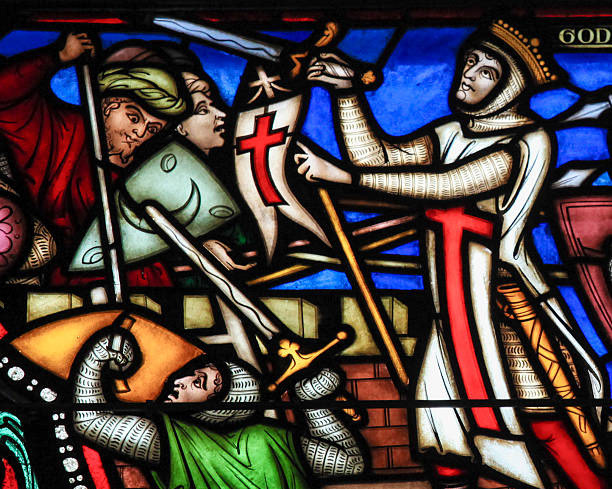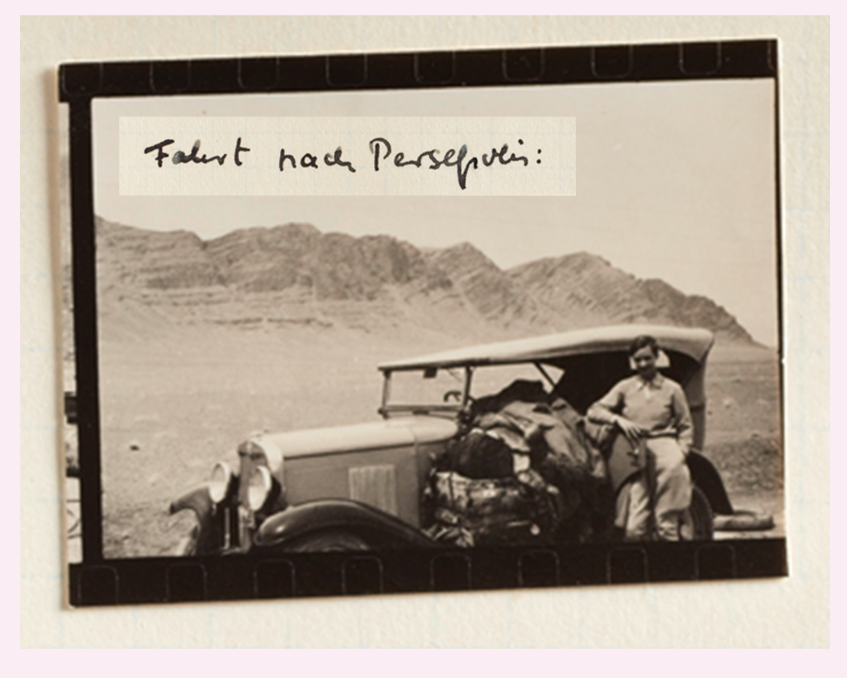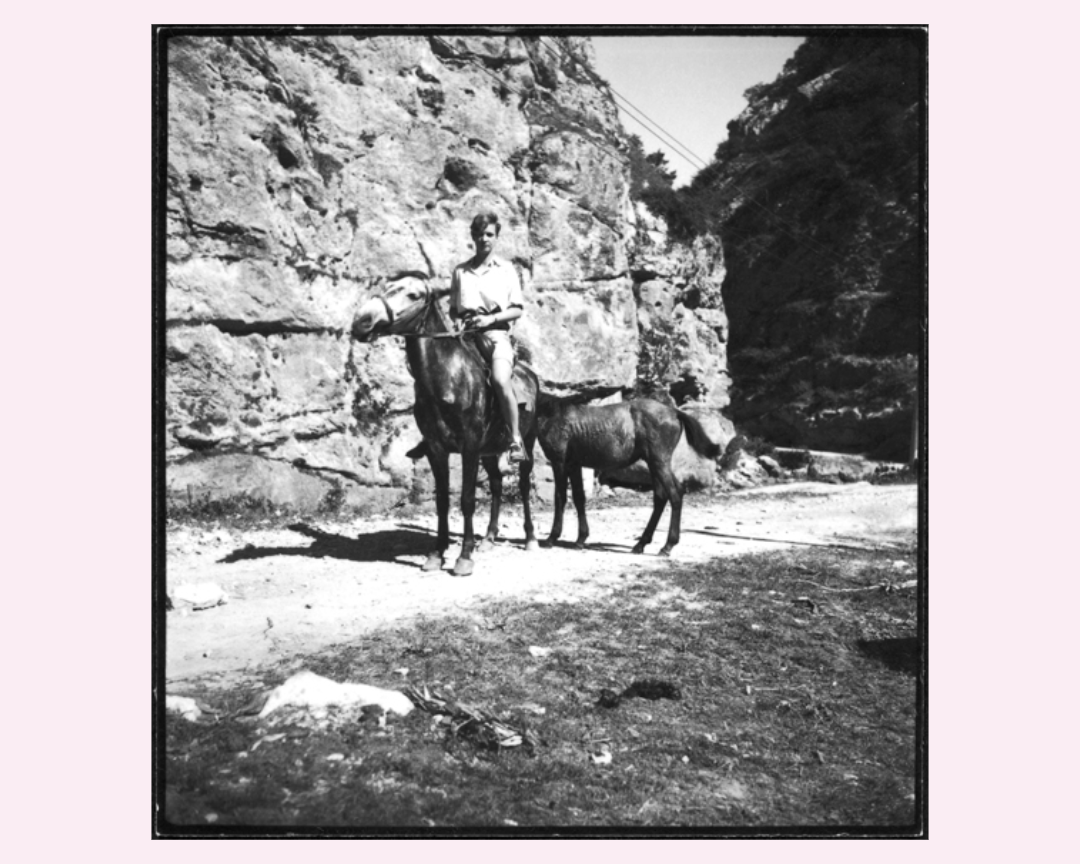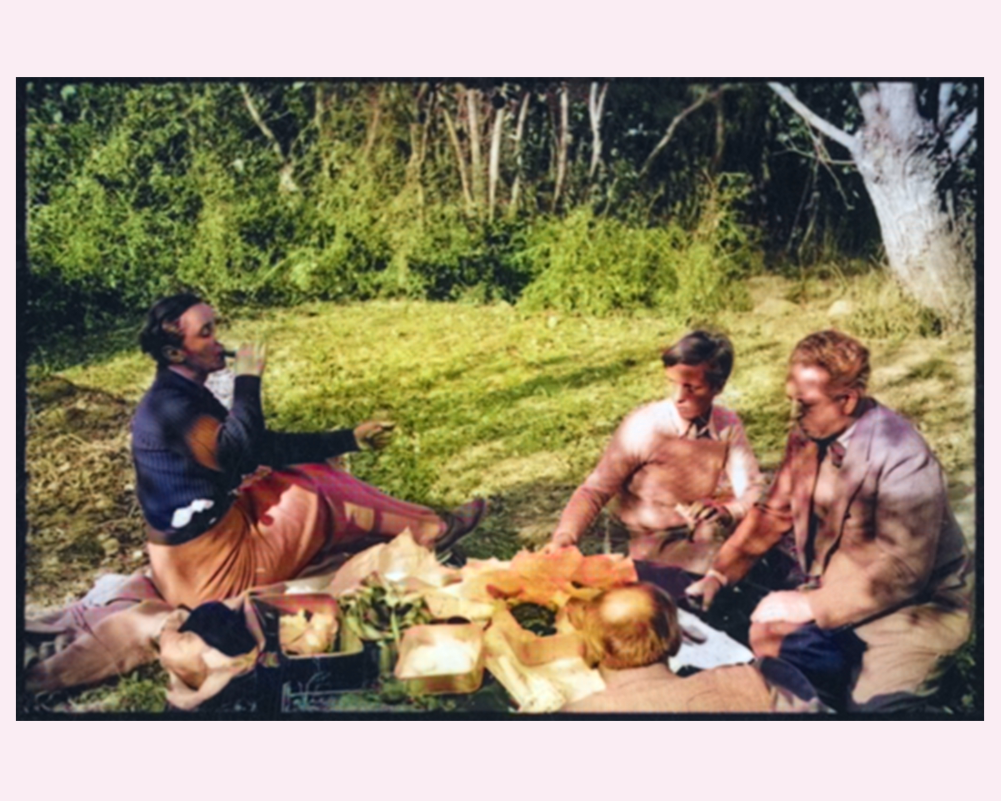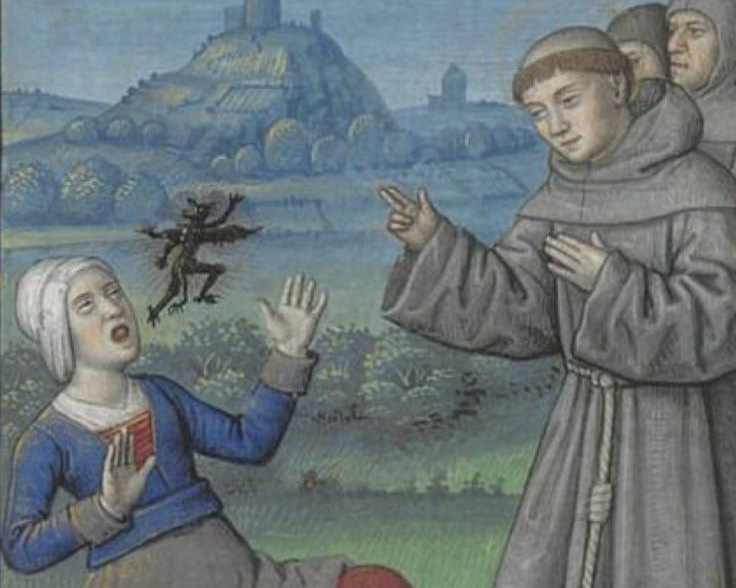Friday 5: Queers of Psychopathia Sexualis
Top 5, in order of appearance.
10.12.23
*****
Excerpted from Psychopathia Sexualis, by Richard von Krafft-Ebing (1886). Edited for length & clarity.
CW: Gender dysphoria, suicidality.
#1. Case 129
“I come of a family in which nervous and mental diseases have been numerous. It is said that I was very pretty as a little child, with blonde locks and transparent skin; very obedient, quiet and modest, so that I was taken everywhere in the society of ladies without any offence on my part.
I liked best to be at home with my mother, who was everything to me. I had two or three friends with whom I got on good-naturedly; but I liked to play with her sisters quite as well, who always treated me like a girl, which at first did not embarrass me. I must have already been on the road to become just like a girl; at least, I can still well remember how it was always said: ‘He is not intended for a boy.’ At this I tried to play the boy,—imitated my companions in everything, and tried to surpass them in wildness. In this I succeeded. There was no tree or building too high for me to reach its top. I took great delight in soldiers. I avoided girls more, because I did not wish to play with their playthings; and it always annoyed me that they treated me so much like one of themselves.
It seems peculiar to me that, from the time of my schooldays, I had a partiality for ladies’ gloves, which I put on secretly as often as I could. Thus, when once my mother was about to give away a pair of gloves, I made great opposition to it, and told her, when she asked why I acted so, that I wanted them myself. I was laughed at; and from that time I took good care not to display my preference for female things. Yet my delight in them was very great. I took especial pleasure in masquerade costumes—i.e., only in female attire. If I saw them, I envied their owners. What seemed to me the prettiest sight was: two young men, beautifully dressed as white ladies, with masks on; and yet I would not have shown myself to others as a girl for anything; I was so afraid of being ridiculed.
A young lady’s form was more pleasing to me; her quiet manner, her deportment, but particularly her attire, attracted me. But I was careful not to allow this to be noticed.
If I had been asked to say why I preferred female attire, I could have said nothing more than that it attracted me powerfully; perhaps, also, I seemed to myself, on account of my uncommonly white skin, more like that of a girl. The skin of my face and hands, particularly, was very sensitive. Girls liked my society; and, though I should have preferred to have been with them constantly, I avoided them when I could; for I had to exaggerate in order not to appear feminine. In my heart I always envied them. I was particularly envious when one of my young girl friends got long dresses and wore gloves and veils. A lady elaborately dressed was like a goddess to me; and if even her hand touched me coldly I was happy and envious, and only too gladly would have put myself in her place in the beautiful garments and lovely form. I had no inclination toward men. But I remember that I was somewhat lovingly attached to a very handsome friend with a girl’s face and dark hair, though I think I had no other wish than that we both might be girls.
***
On account of unhappy circumstances, I twice attempted suicide. Without any cause I once did not sleep for fourteen days, had many hallucinations (visual and auditory at the same time), and was with both the living and the dead. The latter habit of thought remains. I also had a friend (a lady) who knew my hobby and put on my gloves for me; but she always looked upon me as a girl. Thus I understood women better than other men did, and in what they differed from men; so I was always treated more feminarum—as if they had found in me a female friend.
I was wanting in only one respect: I could not understand my own condition. I knew that I had feminine inclinations, but believed that I was a man. Thus I went through life, such as it was, never satisfied with myself, full of dissatisfaction with the world, and vacillating between sentimentality and a wildness that was for the most part affected.
***
Since I always felt out of my own place, I went much in gay society; and I experimented with many drugs and methods of cure, always on myself. On one of these occasions it happened that I suddenly changed, and seemed to be near death.
This happened when the extract of Indian hemp came into vogue, and was highly prized. In a state of fear of a threatened attack of gout (feeling perfectly indifferent about life), I took three or four times the usual dose of it, and almost died of hashish poisoning. Convulsive laughter, a feeling of unheard of strength and swiftness, a peculiar feeling in brain and eyes, millions of sparks streaming from the brain through the skin,—all these feelings occurred. But I could not force myself to speak. All at once I saw myself a woman from my tees to my breast; I felt that the genitals had shrunken, the pelvis broadened, the breasts swollen out; a feeling of unspeakable delight came over me. I closed my eyes, so that at least I did not see the face changed. My physician looked as if he had a gigantic potato instead of a head; my wife had the full moon on her thorax. And yet, I was strong enough to briefly record my will in my note-book when both left the room for a short time.
But who could describe my fright when, on the next morning, I awoke and found myself feeling as if completely changed into a woman; and when, on standing and walking, I felt vulva and mammæ! When at last I raised myself out of bed, I felt that a complete transformation had taken place in me. During my illness a visitor said: ‘He is too patient for a man’. And the visitor gave me a plant in bloom, which seemed strange, but pleased me. From that time I was patient, and would do nothing in a hurry; but I became tenacious, like a cat, though, at the same time, mild, forgiving and no longer bearing enmity,—in short, I had a woman’s disposition. During the last sickness I had many visual and auditory hallucinations, spoke with the dead, etc.; saw and heard familiar spirits; felt like a double person. The imperative female feeling remained, and became so strong that I wear only the mask of a man, and in everything else feel like a woman.
All that that means one alone can know who feels or has felt so. But the skin all over my body feels feminine; it receives all impressions, whether of touch, of warmth, or whether unfriendly, as feminine, and I have the sensations of a woman. When the time is past when we men are permitted to carry sun-umbrellas, I have to endure great sensitiveness of the skin of my face, until sun-umbrellas can again be used. On awakening in the morning, I am confused for a few moments, as if I were seeking for myself; then the imperative feeling of being a woman awakens. I feel the sense of the vulva (that one is there), and always greet the day with a soft or loud sigh; for I have fear again of the play that must be carried on throughout the day.
***
Odours have an incredible effect on the female organism; thus, for example, the odours of violets and roses quiet me, while others disgust me; and with Ylang-Ylang I cannot contain myself for sexual excitement. Contact with a woman seems homogeneous to me; coitus with my wife seems possible to me because she is somewhat masculine, and has a firm skin; and yet it is more an amor lesbiens.
***
My dearest associate is a lady suffering with neurasthenia, who, since her last confinement, feels like a man. She, by her example, helps me to endure my condition. She has a most perfect memory of the female feelings, and has often given me good advice. Her present appearance is quite different from what it formerly was. She is a very elegantly dressed gentleman, notwithstanding bosom and hair; she also speaks quickly and concisely, and no longer takes pleasure in the things that please me. She has a kind of melancholy dissatisfaction with the world, but she bears her fate worthily and with resignation, finding her comfort only in religion and the fulfilment of her duty. At the time of the menses, she almost dies."
*****
#2. Ilma S.
Ilma S., aged twenty-nine; single, merchant’s daughter; of a family having bad nervous taint. Father was a drinker and died by suicide, as also did the patient’s brother and sister. A sister suffered with convulsive hysteria. Mother’s father shot himself while insane. Mother was sickly, and paralysed after apoplexy. The patient never had any severe illness. She was bright, enthusiastic and dreamy.
At fourteen, chlorosis and catalepsy from fright. Later, hysteria gravis and an attack of hysterical insanity. At eighteen, relations with a young man which were not platonic. This man’s love was passionately returned. From statements of the patient, it seemed that she was very sensual, and after separation from her lover practised masturbation. After this she led a romantic life. In order to earn a living, she put on male clothing, and became a tutor; but she gave up her place because her mistress, not knowing her sex, fell in love with her and courted her. Then she became a railway employee. In the company of her companions, in order to conceal her sex, she was compelled to visit brothels with them, and hear the most vulgar stories. This became so distasteful to her that she gave up her place, resumed the garments of a female, and again sought to earn her living. She was arrested for theft, and on account of severe hystero-epilepsy was sent to the hospital. There inclination and impulse toward the same sex were discovered. The patient became troublesome on account of passionate love for female nurses and patients.
***
Her sexual inversion was considered congenital. With regard to this, the patient made some interesting statements:
“I am judged incorrectly, if it is thought that I feel myself a man toward the female sex. In my whole thought and feeling I am much more a woman.
The change of my feelings originated in this, that, in Pesth, dressed as a man, I had an opportunity to observe my cousin. I saw that I was wholly deceived in him. That gave me terrible heart-pangs. I knew that I could never love another man; that I belonged to those who love but once. Of similar effect was the fact that, in the society of my companions at the railway, I was compelled to hear the most offensive language and visit the most disreputable houses. As a result of the insight into men’s motives, gained in this way, I took an unconquerable dislike to them. However, since I am of a very passionate nature and need to have some loving person on whom to depend, and to whom I can wholly surrender myself, I felt myself more and more powerfully drawn toward intelligent women and girls who were in sympathy with me.”
***
The antipathic sexual instinct of this patient expressed itself in a stormy and decidedly sensual way, and was further augmented by masturbation; because constant control in hospitals made sexual satisfaction with the same sex impossible. Character and occupation remained feminine. There were no manifestations of viraginity. According to information lately received by the author, this patient, after two years of treatment in an asylum, was entirely freed from her neurosis and sexual inversion, and discharged cured.
*****
#3. The Case of a Young Woman
Magnan reports the case of a young woman who had an increasing sexual desire from puberty, and satisfied it by masturbation. Gradually she grew to become sexually excited at the sight of any man pleasing to her; and, since she was unable to control herself, she would sometimes shut herself up in a room until the storm had passed. At last she gave herself up to men of her choice, that she might get rest from her tormenting desire, but neither coitus nor masturbation brought relief, and she went to an asylum.
***
The case of a mother of five children is added, who, in despair about her inordinate sexual impulse, attempted suicide, and then sought an asylum. There her condition improved, but she never trusted herself to leave it.
***
The normal, untainted wife guided by ethical reasons, knows how to conquer herself.
The normal woman, endowed with full moral consciousness, knows how to conceal the terrible secret.
*****
#4. Mrs. X
Mrs. X., daughter of a high official. Her mother died from nervous disease. The father was untainted, and died from pneumonia at a good old age. Her brothers and sisters had inferior psychopathic dispositions; one brother was of abnormal character, and very neurasthenic.
As a girl Mrs. X. had decided inclinations for boys’ sports. She used to rove about the fields and woods in the freest manner, and climbed the most dangerous rocks and cliffs. She had no taste for dresses and finery. Once, when they gave her a dress made in boys’ fashion, she was highly delighted; and when at school they dressed her up in boys’ clothes on the occasion of some theatrical performance, she was filled with bliss.
Otherwise nothing betrayed her homosexual inclinations.
Her engagement with a man who, though good and rich, yet possessed not the slightest knowledge of woman’s nature, was a matter of utter indifference to her. She had neither sympathy for nor antipathy against matrimony. Her connubial duties were at first painful to her, later on simply loathsome. She never experienced sexual pleasure, but became the mother of six children. When her husband began to observe coitus interruptus, on account of the prolific consequences, her religious and moral sentiments were hurt. Mrs. X. grew more and more neurasthenic, peevish and unhappy.
***
She suffered from descensus uteri, erosions on the portio vaginalis, and became anæmic. Gynecological treatment and visits to watering-places procured but slight improvements.
At the age of thirty-six she had an apoplectic stroke, which confined her to bed for two years, with heavy neurasthenic ailments (agrypnia, pressure in the head, palpitation of the heart, psychical depression, feelings of lost physical and mental power, bordering even on insanity, etc.). During this long illness a peculiar change of her psychical and physical feelings took place.
She felt mortified at being a woman. She could not even make up her mind again to look in the mirror. She loathed combing her hair and making her toilet. Much to the surprise of her own people her hitherto soft and decidedly feminine features assumed a strongly masculine character, so much so that she gave the impression of being a man clad in female garb. She complained to her trusted physician that her periods had stopped,–in fact, she had nothing to do with such functions. When they recurred again she felt ill-tempered, and found the odour of the menstrual flow most nauseating, but definitely refused the use of perfumes, which affected her in a similar unpleasant manner.
But in other ways she felt that a peculiar change had come over her entire being. She had athletic spells, and great desire for gymnastic exercises. At times she felt as if she were just twenty. She was startled at the flight and novelty of her thoughts, at her quick and precise method of arriving at conclusions and forming opinions, at the curt and short way of expressing herself, and her novel choice of words not always becoming a lady. Even an inclination to use curse words and oaths was noticeable in this otherwise so pious and correct woman.
***
She reproached herself bitterly, and grieved because she had lost her femininity, and scandalised her friends by her thoughts, sentiments, and actions.
She also perceived a change in her body. She was horrified to notice her breasts disappearing, that her pelvis grew smaller and narrower, the bones became more massive, and her skin rougher and harder.
She refused to wear any more a lady’s night-dress or a lady’s cap, and put away her bracelets, earrings and fans. Her maid and her dressmaker noticed a different odour coming from her person; her voice also grew deeper, rougher, and quite masculine.
When the patient was finally able to leave her bed, the female gait had altered, feminine gestures and movements in her female attire were forced, and she could no longer bear to wear a veil over her face. Her former period of life spent as a woman seemed strange to her, as if it did not belong to her existence at all; she could play no longer the rôle of woman. She assumed more and more the character of a man.
***
Little by little she gained her equilibrium in this novel, strange and morbid physicopsychical form. She took pains in performing her duties as housewife and mother. It was interesting to observe the truly manly firmness of will which she developed, but her former softness of character had vanished. She assumed the rôle of the man in her house, a circumstance which led to many dissensions and misunderstandings. She became an enigma which her husband was unable to solve.
***
She complained to her physician that at times a “bestial masculine libido” threatened to overcome her, which made her despondent. Marital intercourse with the husband appeared to her most repulsive—in fact, impossible. Periodically the patient experienced feminine emotions, but they became scarcer and weaker as time went by. At such periods she became conscious again of her female genitals and breasts, but these episodes affected her painfully, and she felt that such a “second transmutation” would be unbearable, and would drive her to insanity.
She now became reconciled to her transmutatio sexus, brought about by her severe illness, and bore her fate with resignation, finding much support in her religious convictions. What affected her most keenly was the fact that, like an actress, she must move in a strange sphere—i.e., in that of a woman.
*****
#5. The Following Cases By Mantegazza
The following cases of Lesbian love, by Mantegazza, are certainly pathological, and possibly examples of congenital antipathic sexual instinct:
(1) On 5th July, 1777, a woman was brought before a court in London, who, dressed as a man, had been married to three different women. She was recognised as a woman, and sentenced to imprisonment for six months.
***
(2) In 1773, another woman, dressed as a man, courted a girl and asked for her hand; but the trick did not succeed.
***
(3) Two women lived together as man and wife for thirty years. On her death-bed the “husband” confessed her secret to those about her.
*****
Questions? Comments? Submit them here!


